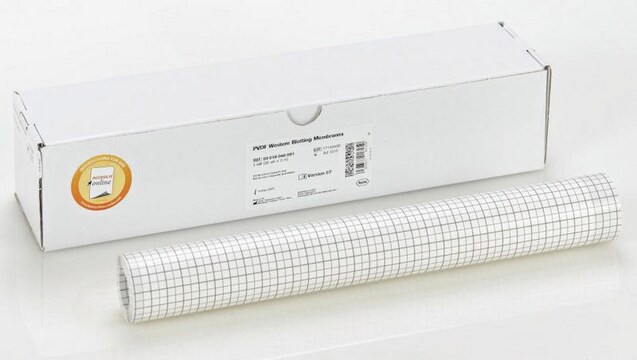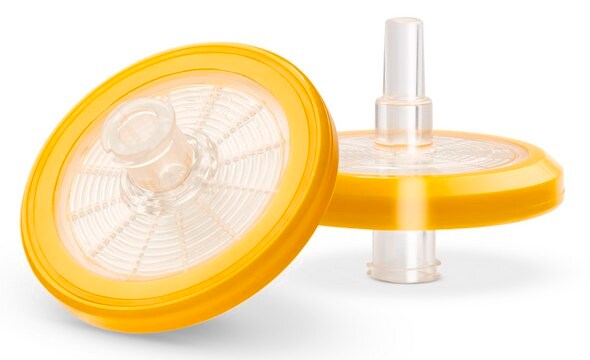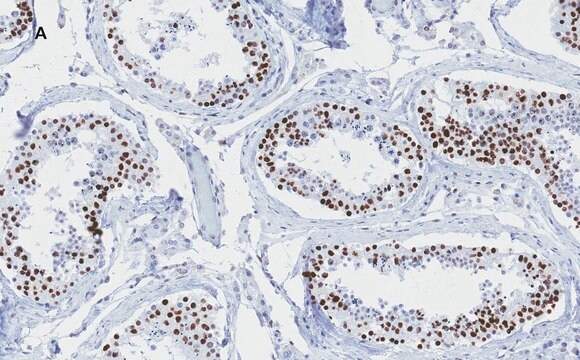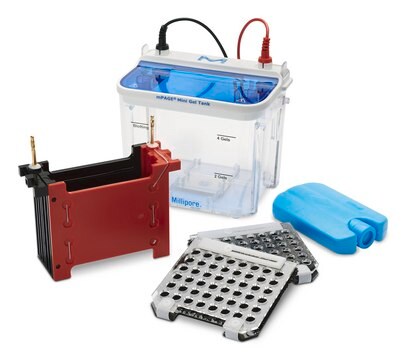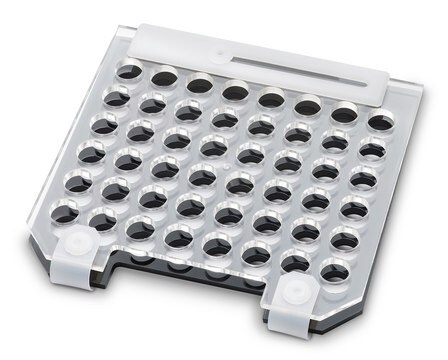ISEQ00010
Immobilon® -PSQ PVDF Membrane
1 roll, 27 cm x 3.75 m, 0.2 µm pore size, transfer membrane for Western blotting
Synonym(s):
Western blotting membrane, blotting membrane, transfer membrane
About This Item
Recommended Products
product name
Immobilon®-PSQ PVDF Membrane, 1 roll, 27 cm x 3.75 m, 0.2 µm pore size, Hydrophobic PVDF Transfer Membrane for western blotting.
material
PVDF membrane
plain filter
white filter
Quality Level
feature
hydrophobic
manufacturer/tradename
Immobilon®
technique(s)
dot blot: suitable
western blot: suitable
filter L × W
27 cm × 3.75 m
pore size
0.2 μm pore size
capacity
262 μg/cm2 adsorption capacity (insulin)
340 μg/cm2 adsorption capacity (BSA)
448 μg/cm2 adsorption capacity (goat IgG)
compatibility
for use with Amido black
for use with CPTS
for use with Colloidal gold
for use with Coomassie brilliant blue
for use with India ink
for use with Ponceau-S red
for use with Sypro<TMSYMBOL></TMSYMBOL> ruby
for use with Toluidine blue
for use with Transillumination
detection method
chemiluminescent
colorimetric
radioactive
shipped in
ambient
Related Categories
General description
Application
Features and Benefits
- 0.2 μm pore size and a large internal structure
- Higher protein adsorption and sequencing yields than other membranes
- Prevents blow-through of low molecular weight proteins
Legal Information
Storage Class Code
11 - Combustible Solids
WGK
WGK 3
Flash Point(F)
Not applicable
Flash Point(C)
Not applicable
Certificates of Analysis (COA)
Search for Certificates of Analysis (COA) by entering the products Lot/Batch Number. Lot and Batch Numbers can be found on a product’s label following the words ‘Lot’ or ‘Batch’.
Already Own This Product?
Find documentation for the products that you have recently purchased in the Document Library.
Our team of scientists has experience in all areas of research including Life Science, Material Science, Chemical Synthesis, Chromatography, Analytical and many others.
Contact Technical Service